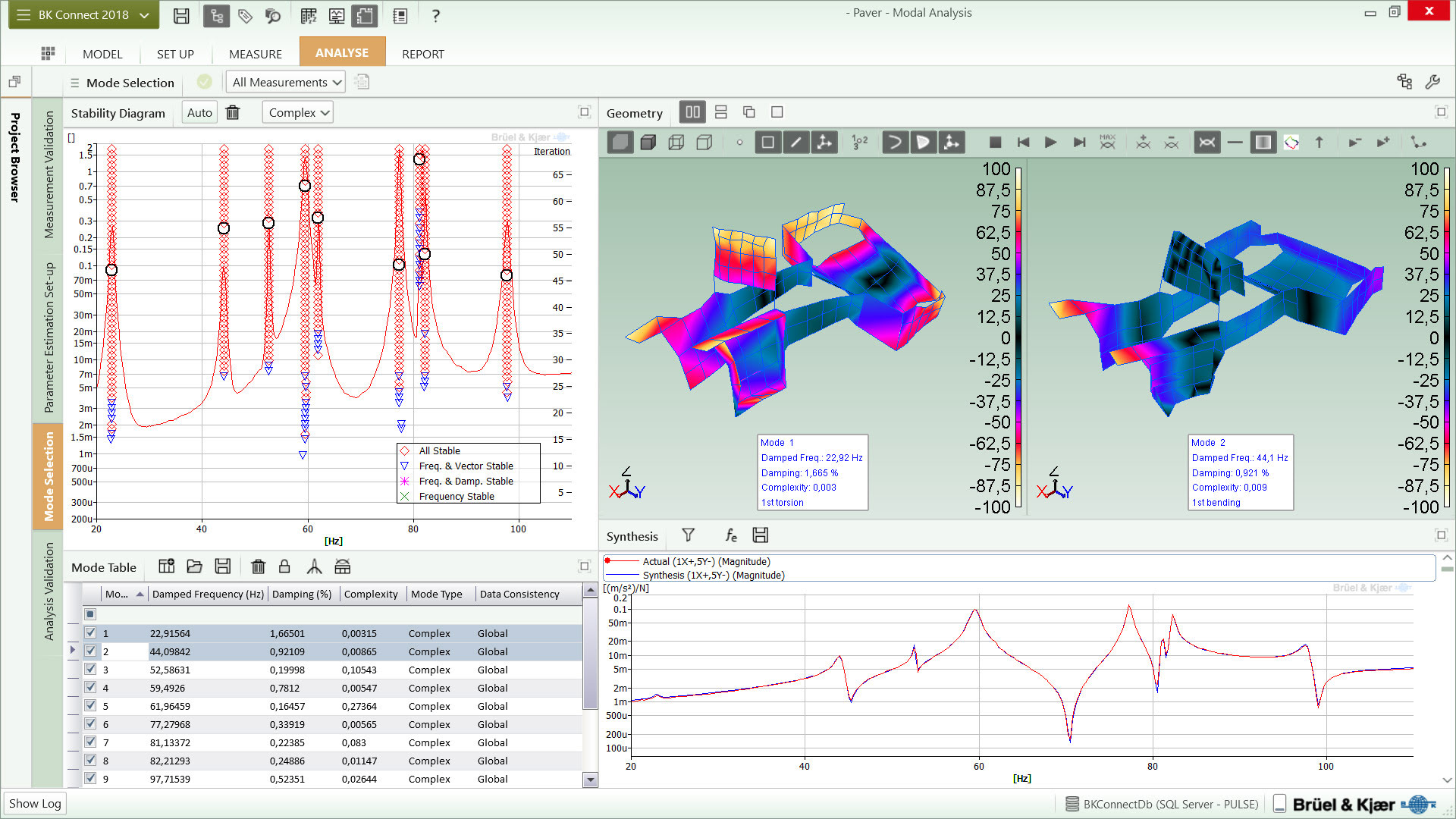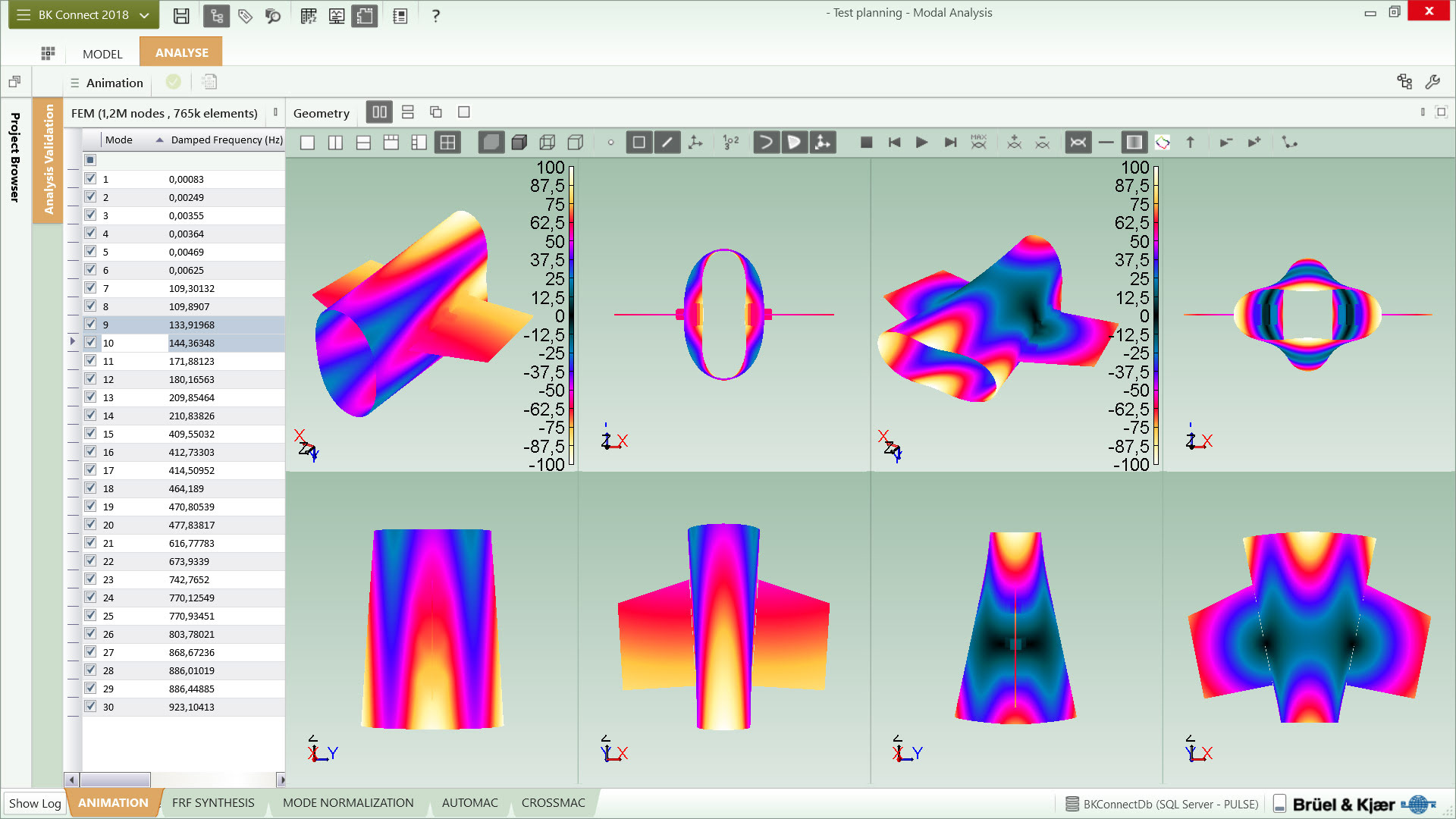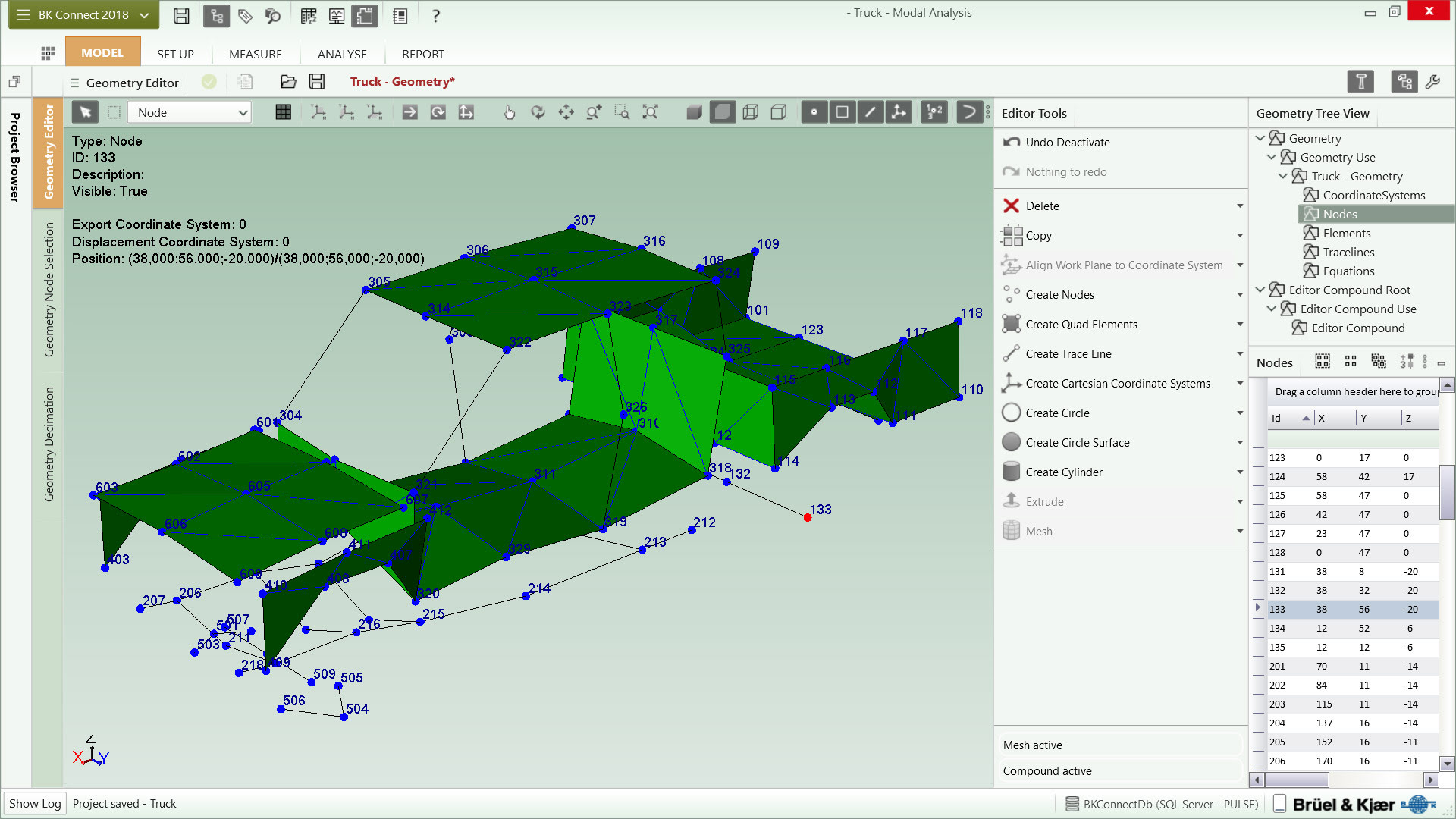BK CONNECT TYPE 8420
Modal Analysis Software
Provides powerful tools for creating geometries and a comprehensive set of analysis and validation tools for single-reference modal analysis.
Richiedi un preventivoBK Connect Modal Analysis performs classical modal analysis by extracting modal parameters from Frequency Response Functions (FRFs) acquired using impact hammer or single shaker excitation of the structure.
The intuitive highly customizable graphical user-interface (GUI) is built around the analysis workflow and guides you step-by-step through the analysis with visual feedback, through measurement validation, parameter estimation set-up, mode selection, analysis validation and reporting. This enables operators and test engineers to routinely perform modal analysis, while allowing a high degree of flexibility for the modal specialist.
USE SCENARIOS
- Single-reference classical modal analysis from measured FRFs
- Estimation of modal parameters to be used for finite element (FE) model correlation and updating, design verification, trouble-shooting, benchmarking and quality control
- Test planning and validation using finite element analysis (FEA) results
CHARACTERISTICS
The software contains powerful tools for geometry creation using top-down or bottom-up modeling. In addition, test geometries can be imported and imported FE models can be decimated down to test geometries. The modal parameters can be extracted and validated using different MIFs, SDOF and MDOF curve-fitters and validation tools. A large number of animation types are available for best possible results investigation and documentation.
CAPABILITIES
- Geometry-guided measurement validation and analysis
- Function‐based animation for test set-up and measurement validation
- Clear stability diagrams for improved overview and straightforward mode selection
- Frequency response function (FRF) synthesis including error function and frequency response assurance criteria (FRAC)
- A comprehensive set of mode indicator functions (MIFs), curve-fitters and analysis validation tools:
- Normal mode indicator function (NMIF) and power mode indicator function (PMIF)
- SDOF and MDOF curve-fitters
- Local and Global solve curve-fitting
- Stability diagram with Enhanced Mode Solution
- Analysis validation: AutoMAC, CrossMAC, Complexity plot and CoMAC geometry plot
- As an open, stand-alone application with your existing data acquisition system
ADDITIONAL CAPABILITIES
- Modal parameter extraction from polyreference hammer or shaker measurements (MIMO analysis) – BK Connect Advanced Modal Analysis Type 8420-A. It increases the number of MIFs, modal parameter extraction techniques (curve-fitters) and validation tools
- Geometry-guided hammer and shaker measurements and stepped sine measurements, respectively – BK Connect Structural Measurements Type 8411 and BK Connect Advanced Sine Measurements Type 8412
- Import Nastran, Ansys and Abaqus finite element models for test planning and validation – BK Connect Finite Element Interfaces Types 8400-D/E/F
- Model correlation between test and finite element models – BK Connect Correlation Analysis Type 8421



